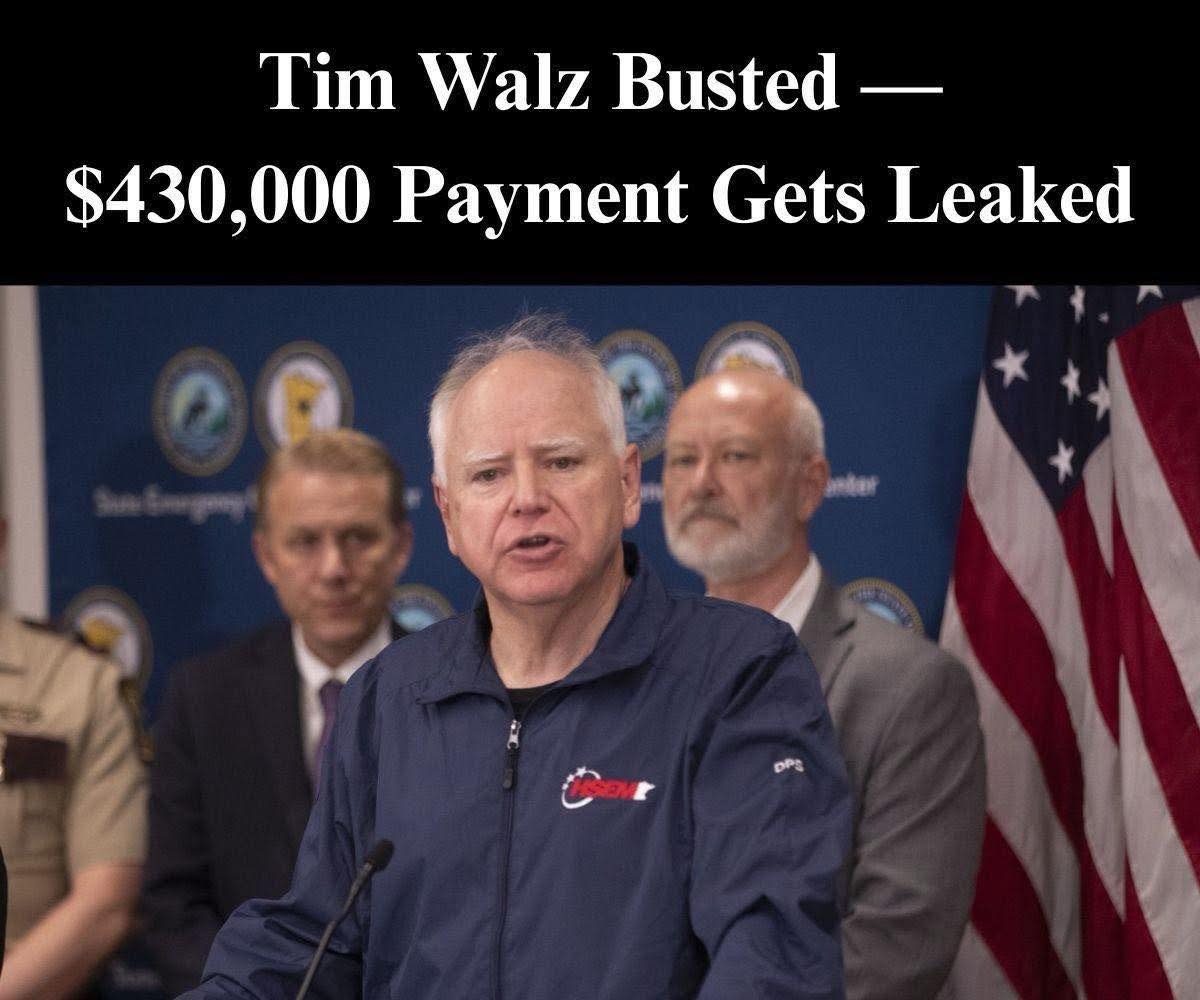Minnesota Republicans have launched fierce criticism against Governor Tim Walz after revelations surfaced that he spent approximately $430,000 of taxpayer money on outside legal counsel to prepare for his testimony before Congress on sanctuary-city policies.
According to detailed invoices obtained by the Star Tribune, the Walz administration hired the prominent law firm K&L Gates between April and June 2025. The firm, known for its extensive government relations and litigation practice, helped Walz prepare for a high-profile hearing before the U.S. House Oversight Committee, which is chaired by Republicans.
The invoices show that K&L Gates attorneys charged an average of $516 per hour, with the largest monthly bill — a staggering $232,000 — issued in May alone. In total, the legal expenses amounted to about $430,000, fully paid for by a transfer from Minnesota’s general fund. This transfer was formally approved by the Legislative Advisory Commission, a body responsible for overseeing unexpected state expenditures.
Governor Walz’s team justified the hiring decision, explaining that while the state attorney general’s office initially provided guidance, the unique pressures and complexities of a federal congressional hearing required specialized legal expertise. Walz’s office emphasized that preparing for aggressive questioning from a partisan-led committee, particularly on a controversial topic like sanctuary cities, demanded thorough legal strategy to protect the state’s interests and avoid misstatements that could be used politically against Minnesota.
Despite these explanations, Republican lawmakers have described the expenditure as both unnecessary and irresponsible. Representative Jim Nash argued that the Minnesota attorney general’s office — which already has substantial legal resources and experienced attorneys — should have been sufficient to advise the governor. Meanwhile, Representative Harry Niska was especially vocal, characterizing the legal expenses as little more than “overpriced PR consulting.” He further accused Walz of focusing on national optics and positioning himself for possible future campaigns beyond Minnesota, rather than prioritizing immediate state governance.
Walz, however, pushed back strongly against these criticisms. In statements following the hearing, he dismissed the congressional proceedings as a partisan “political stunt” orchestrated by House Republicans. His office described the entire hearing as an exercise in grandstanding, arguing that no new substantive findings emerged from the hours-long testimony and that the questioning primarily aimed to embarrass Democratic governors who support immigrant-friendly policies.
The issue has sparked a broader debate over the use of public funds for legal and communication support related to federal inquiries. While Walz’s spending is drawing significant attention in Minnesota, it’s not without precedent nationally. For example, Boston Mayor Michelle Wu recently authorized up to $650,000 to hire outside counsel for a similar congressional hearing on municipal immigration policies. Likewise, Denver Mayor Mike Johnston reportedly spent around $250,000 to prepare for testimony in front of a federal panel on urban crime.
Supporters of Walz argue that these comparisons show he is not alone in seeking robust legal protection when facing politically charged investigations. They contend that with the stakes so high — including the potential for legal liability, reputational harm, and policy setbacks — comprehensive legal preparation is not just defensible but necessary.
Nevertheless, fiscal conservatives and watchdog groups maintain that such expenditures represent a dangerous trend of blurring the lines between official governance and personal political strategy. They warn that if left unchecked, these costs could escalate, effectively diverting millions in taxpayer money toward defending political theater rather than serving core public needs such as education, healthcare, and infrastructure.
In response to the uproar, some Minnesota lawmakers are now calling for new legislation that would restrict future governors and senior officials from using external legal counsel for congressional or political testimony unless absolutely necessary — and perhaps only with prior explicit approval from the state legislature. Others are suggesting that any non-criminal legal defense work for public officials should be funded personally, especially if the hearings in question are seen as politically motivated rather than legally mandated.
As public opinion divides, many Minnesotans are left questioning where to draw the line between legitimate government defense spending and unnecessary political maneuvering. For Governor Walz, the controversy underscores the broader national tensions around immigration policy, executive accountability, and the growing costs of high-stakes political battles.
Whether this incident will impact his political future in Minnesota or on the national stage remains to be seen. For now, it stands as a vivid example of the challenges modern politicians face in balancing governance, legal defense, and public trust — all under the intense scrutiny of a divided and highly polarized electorate.
